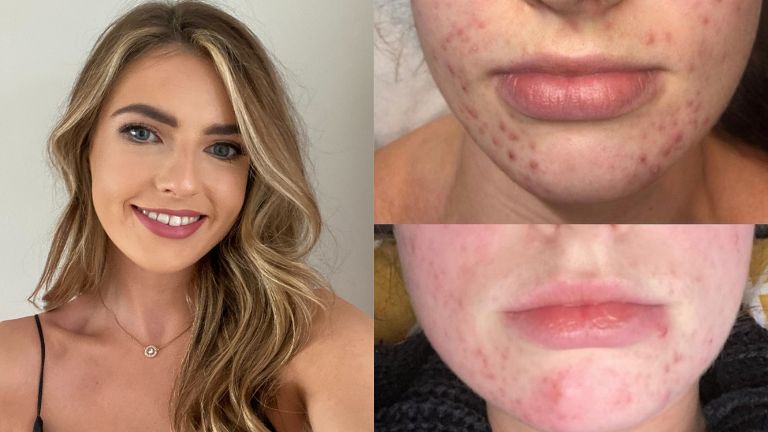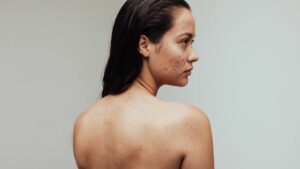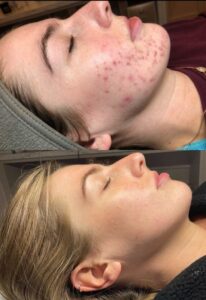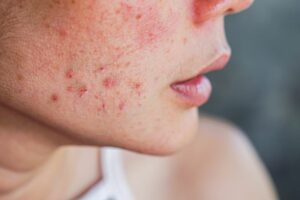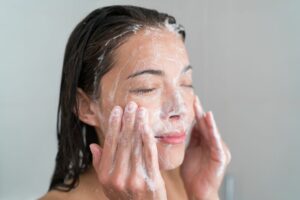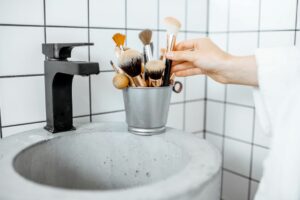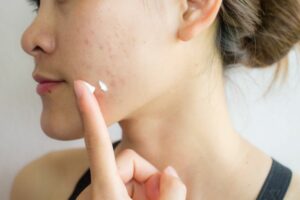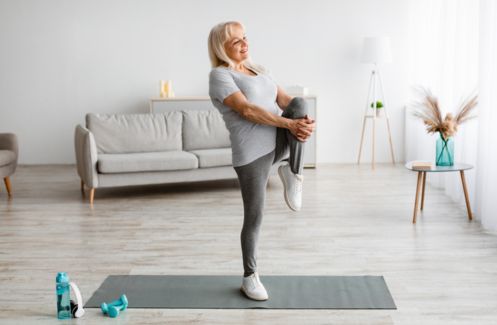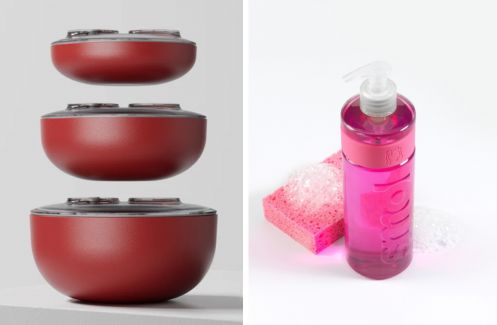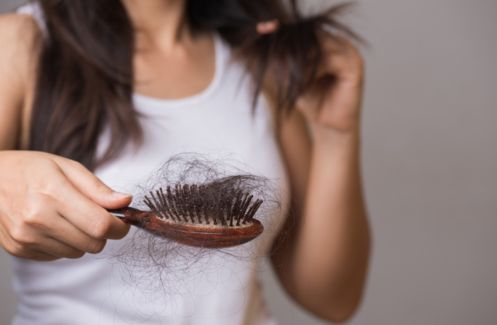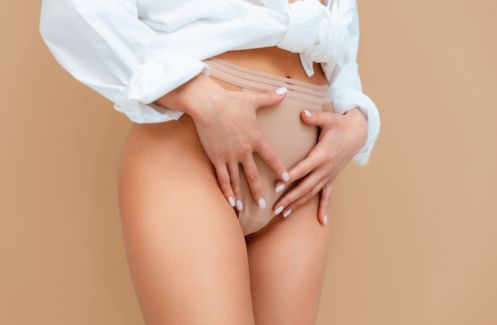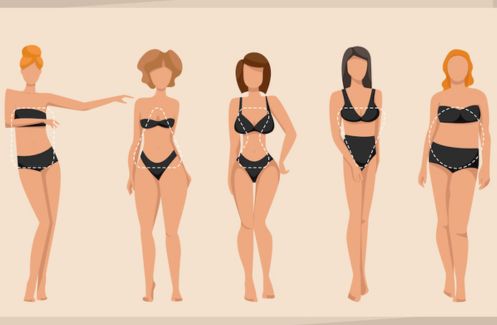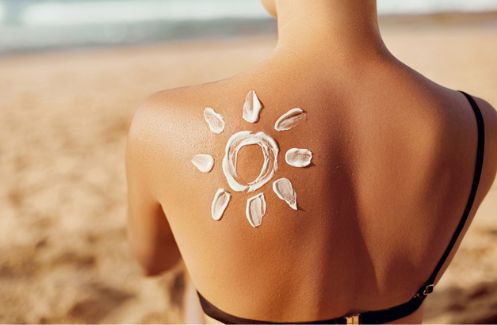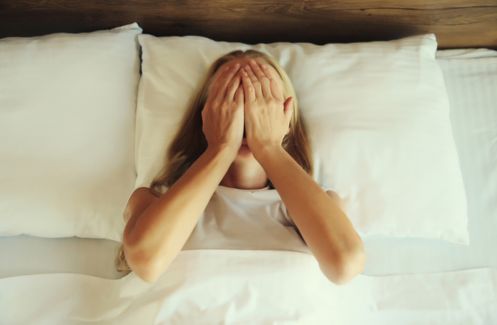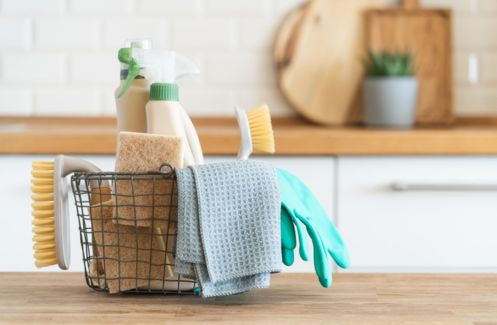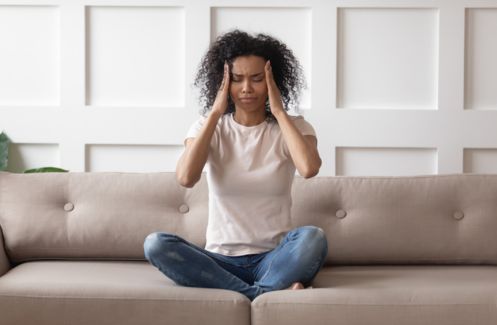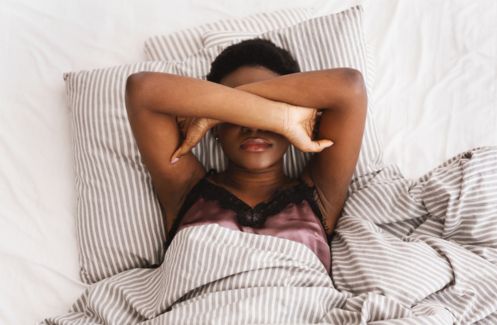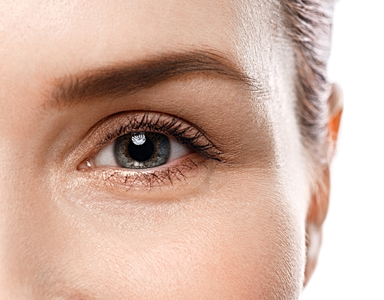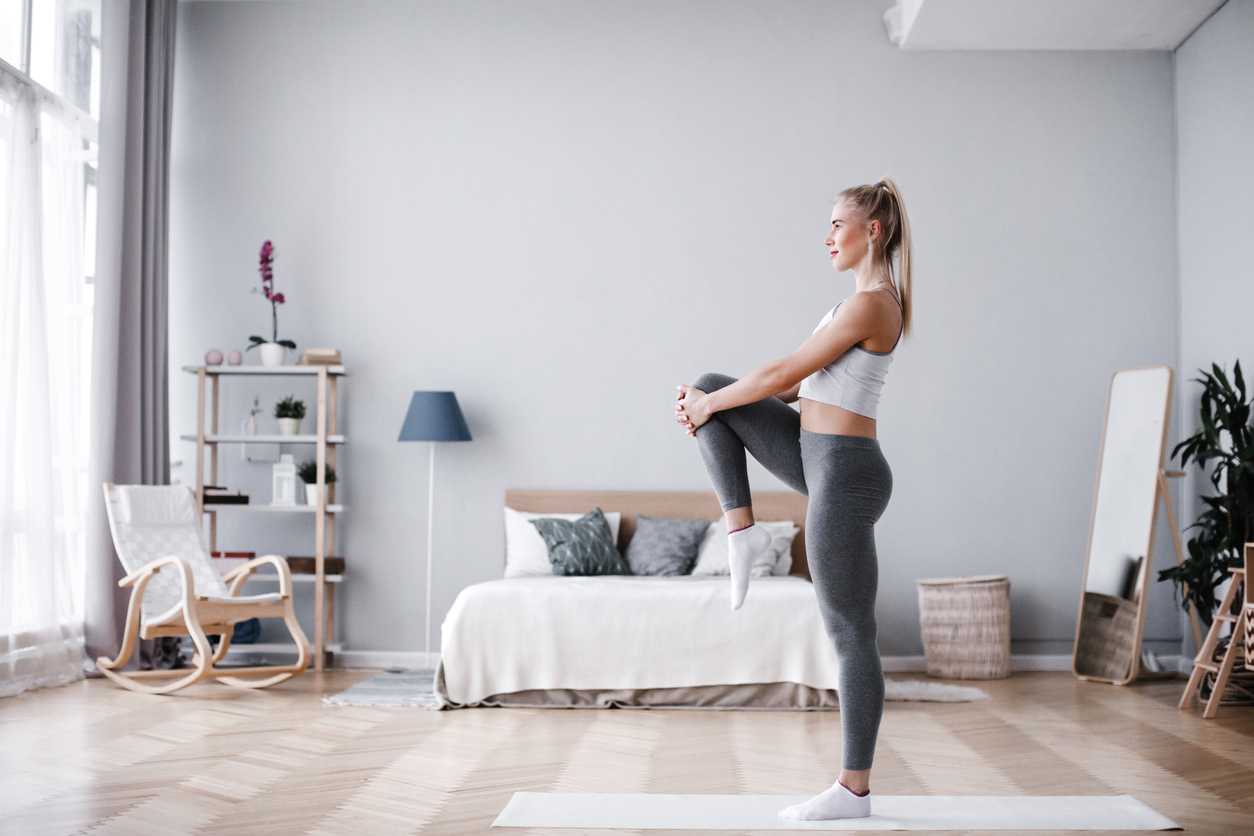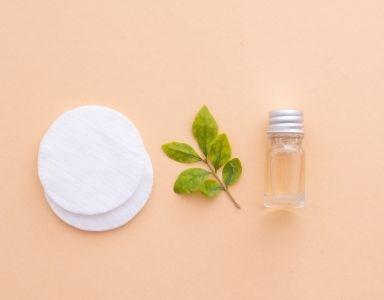Do you suffer from adult acne? Skin expert Niamh Darcy from Re-Nu Clinic, reveals exactly what can cause a flare up and 7 important skincare tips your skin will thank you for
Acne is the most common skin condition – and it isn’t only teens that suffer – adults do too.
In fact, around 95 percent of people aged 11 to 30 are affected to some extent, with 3 per cent of adults experiencing acne over the age of 35.
It comes as no surprise that adolescent acne is primarily caused by a surge in hormones due to puberty and hormone production.
around 95 percent of people aged 11 to 30 are affected to some extent
Similarly to teen acne, adult acne can be triggered by hormonal changes too, such as pregnancy or menopause as this is when oestrogen and progesterone levels drop. Because of this, adult acne therefore tends to afflict women more than men.
‘We have been seeing more acne cases than we ever have before,’ says skin expert Niamh Darcy, founder of Re-Nu Skin Clinic.
‘Changes in contraception, or having IVF can have huge ramifications on your hormones – and therefore your skin.
‘Hormonal based conditions like endometriosis and PCOS can also impact your skin’.
What causes adult acne?
Acne is formed when the small opening of our hair follicles becomes clogged with sebum – an oily substance that lubricates your skin, hair and dead skin cells.
Teen acne is mainly found in the T-zone area, chest and back and typically affects more oily skin. Adult acne however is more commonly found on the chin and around the mouth and is a drier acne rather than an oily acne.
Acne can show up in many different ways, such as blackheads and whiteheads which can look like tiny little bumps under the skin, to pimples, nodules and cysts, which are caused when bacteria seeps into the deeper layer of the skin causing inflammation.
There are many different reasons why someone may experience adult acne. Indeed, only 17 per cent of your skin microbiome is hereditary, therefore acne is more commonly caused by lifestyle factors such as chronic stress, dietary choices, skincare products and medication.
‘What acne looks like is a good way to pinpoint its reason,’ explains Niamh.
acne is more commonly caused by lifestyle factors such as chronic stress, dietary choices, skincare products and medication
‘Yellow headed spots, papules and breakouts are usually cause by stress, lifestyle and diet, whereas hormonal acne is often tough and sore, and can look more like purple or blue boils, which can be quite painful’.
If you are suffering from adult acne, don’t stress out by thinking it won’t ever go away – that will only make your skin worse!
Acne is one of the more stubborn skin conditions, so patience is a virtue when it comes to treatments.
Only sometimes will your doctor need to be consulted regarding your acne type. If you suspect any type of stubborn bacterial infected acne, it may be worth making an appointment to check.
Here are a few things you can do to help treat and prevent adult acne…
#1 Visit a skincare clinic
Niamh Carroll, 26 had severe acne for six years.
Niamh didn’t know what was causing her adult acne and tried every different skincare brand under the sun – costing her a fortune!
‘When my acne got really bad, I couldn’t even wear make-up as my skin was too sore to touch, and would start to bleed,’ says Niamh Carroll, from Tullamore in Ireland.
‘I was mortified once when my colleague said my face was bleeding and asked if I needed a tissue.
‘The doctor diagnosed me with acne and suggested I try prescription medication, but I didn’t want to affect my body any further’.
Suffering from purple and blue spots that caused Niamh much discomfort, she decided to visit Re-Nu Skin Clinic.
‘Here in Re-Nu Skin and Beauty Clinic we work with a combination of medical-grade skincare routine products as well as in salon treatments,’ explains Niamh Darcy.
‘For our in salon we treatment we use Dermalux – a non invasive treatment that uses light energy to trigger the skins natural rejuvenation and repair process.
‘This uses a combination of red, blue and near infrared wavelengths to boost collagen, calm redness and irritation and blitz blemishing causing bacteria.
‘Alongside our bespoke treatments, our AlumierMD medical grade home skincare range help to make the skin clear and bright using therapeutic doses backed by science.
‘We gave Niamh a simple AlumierMD skincare routine that focussed on cleaning and protecting.
‘After three months of a skincare routine and in clinic treatments, there was no more active acne and Niamh’s breakouts had gone’.
‘I am so much more confident in myself, and much happier. I don’t have anxiety about how my face looks now and I’m not in pain anymore,’ reveals Niamh Carroll.
AlumierMD products can only ne purchased following a skincare consultation with one of the brand’s licenced professionals. To find out more, contact your local AlumierMD Clinic.
#2 Look after your gut
Look out for triggers in your diet that may suggest a dairy or wheat intolerance. This not only causes bloating or cramping but can also lead to skin breakouts.
Excess sugar and caffeine can lead to poor gut health, which may lead to a disturbance of the skin’s own microbiome, therefore causing inflammation.
#3 Research your skincare products
Sometimes something simple such as not using the correct products for your skin can lead to an overproduction of oil on your skin.
As we get older our skin cell turnover can slow down leading to a build-up of dead skin cells on the outermost layer of our skin. This is where using the correct products can help to resurface the skin leading to brighter clearer skin.
There are different products to suit different types of acne as there are inflammatory and noninflammatory types, we suggest products that are pH balancing, manage bacteria and sebum production.
This will help to target existing breakouts whilst also keeping the skin moisturised and balanced.
we suggest products that are pH balancing, manage bacteria and sebum production
Ingredients such as Salicylic acid manages oil production as it is oil soluble allowing it to penetrate follicles to effectively exfoliate dead skin cells and control acne pimples.
Develop a good skincare routine preferably with a medical skincare line such as Alumier MD. Having a skincare routine specifically designed to treat your own current skin concerns is paramount.
Oh and consistency is key. Be consistent with your skincare routine, cleansing both morning and evening and using the appropriate products for your skin type.
#4 Check your medication
Medications can unfortunately trigger breakouts for some people.
‘These include underactive thyroid medication and some medications for supporting mental health,’ explains Niamh.
If you suspect your acne is being caused by your medication, consult with your doctor who may be able to advise on suitable supplements that can help support the skin from the inside.
#5 Clean your make-up brushes
There is no need to avoid wearing makeup although it is extremely important to make sure your brushes are cleansed before each use.
Using a antibacterial makeup brush spray can be an easy way to do this and is a 30 second job that can have a hugely positive impact on your skin.
Make sure you are also taking the time to deep clean your brushes at least once every two weeks using an antibacterial soap.
deep clean your brushes at least once every two weeks
Also be mindful to double cleanse the skin before bed to ensure your skin is squeaky clean and make up free. Oh and it’s especially important to wash your face thoroughly if you have been sweating at the gym or playing sport.
Plus, changing your pillowcase more frequently will help to prevent unwanted bacteria building up.
#6 Don’t touch your skin
Although tempting for some, try not to touch, pick or squeeze any breakouts on the skin. If you must touch your face, wash your hands first to avoid transferring bacteria.
Not picking or squeezing your skin will also prevent any long-term acne scarring, which may need treatment in the future.
#7 Try adding supplements to your daily routine
Adding supplements to your diet will turbocharge your results for your skin also.
There is a range of supplements that can be taken to help clear the skin, including omegas to help regulate oil production and keep the skin moisturised, magnesium and zinc to increase skin healing and promote a healthy sleep and probiotics to help manage a healthy gut microbiome to promote clear skin.
#8 Never forget your SPF
SPF is the most important product after a cleanser.
‘It is vital that the skin is protected with an effective SPF that is high in anti-oxidants that prevents inflammation in the skin, which can cause the formation of acne,’ explains Niamh Darcy.
#9 Stress less
‘Burning the candle at both ends’ aka chronic stress can wreak havoc on your skin.
‘Women who have never suffered with acne before are experiencing breakouts and many people are working longer hours, and therefore experiencing heightened stress,’ reveals Niamh.
More Healthista Content:
4 reasons you’re feeling low and how to combat it
Food synergy – 9 healthy recipes with food combinations guaranteed to super-boost your health
Iron deficiency – nutritionist reveals all you need to know about this vital mineral
4 signs your low mood shouldn’t be ignored plus what may help
How to transform your diet in 5 easy steps
Like this article? Sign up to our newsletter to get more articles like this delivered straight to your inbox.


